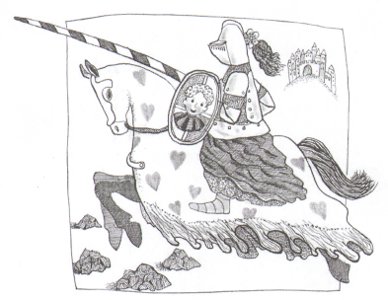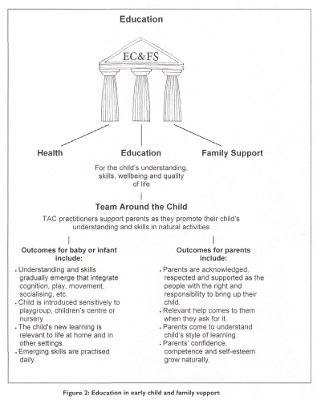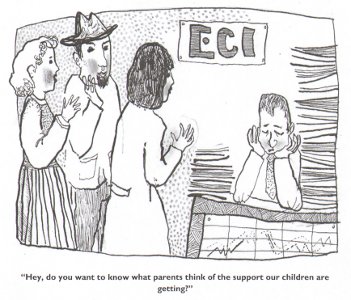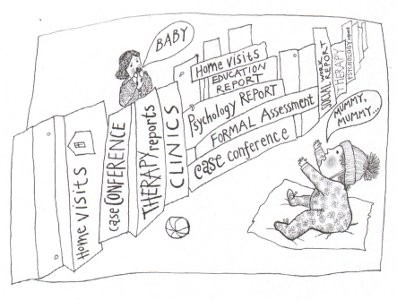New book: Bringing up babies and young children who have very special needs - 8 sample pages
Bringing up babies and young children who have very special needs: A 21st century guide for parents, students and new practitioners
By Peter Limbrick. Illustrations by Martina Jirankova-Limbrick.
Published by Interconnections in April 2019.
£14.75 + £3.00 p&p (UK). Please apply for overseas rates.
Review copies available. Contact This email address is being protected from spambots. You need JavaScript enabled to view it.
In Interconnections bookshop
On Amazon
A recent review. Extract: “The book is particularly useful for parents who can often feel like they live in a world separated from the main world because babies and infants who have very special needs belong to a small minority, most people will rarely encounter.”
From Back cover:
Peter Limbrick is an educationalist with long experience of babies and young children who have multiple diagnoses. His approach helps children who have disabilities and very special needs learn basic skills and supports parents with all they have to deal with.
This book is about support children and families might need. It contrasts effective 21st century support with approaches that are out-of-date and, at worst, insensitive and institutional.
Peter describes three essential pillars of effective support:
- Health: for the child’s survival and freedom from pain
- Education: for the child’s understanding, skills and wellbeing
- Family support: for the family’s resilience and quality of life
 Peter tells us there is no time to waste and roles are very clear: Parents’ role is to bring up their children. The role of therapists, teachers and other practitioners is to help them. Even so, many parents have to go into battle to get what they need.
Peter tells us there is no time to waste and roles are very clear: Parents’ role is to bring up their children. The role of therapists, teachers and other practitioners is to help them. Even so, many parents have to go into battle to get what they need.
Contents:
- Introduction
- The three pillars of early child and family support
- Health: The first pillar of early child and family support
- Education: The second pillar of early child and family support
- Family support: The third pillar of early child and family support
- Evaluating early child and family support
- Humanity around babies and young children who have very special needs
- Unhelpful features of out-dated support
- Concluding remarks
- Appendix 1: Occupational Therapists in Early Intervention
- Appendix 2: Questions a parent might need answers to
- Appendix 3: How programmes can be integrated
- References
Page 44:

From Page 54 and 55:
 Evaluation of early child and family support by a local agency must rely heavily on the parents’ point of view and include support from all the agencies and practitioners around them. This all-embracing evaluation, which must include health, education and family support, is necessary because while one practitioner is providing a valued service they might be part of a disorganised and chaotic totality. While one agency is up to date, others might be stuck in unhelpful traditional attitudes. There might or might not be efforts for all agencies to work together in the TAC approach....
Evaluation of early child and family support by a local agency must rely heavily on the parents’ point of view and include support from all the agencies and practitioners around them. This all-embracing evaluation, which must include health, education and family support, is necessary because while one practitioner is providing a valued service they might be part of a disorganised and chaotic totality. While one agency is up to date, others might be stuck in unhelpful traditional attitudes. There might or might not be efforts for all agencies to work together in the TAC approach....
From Page 59:
Humanity around babies and young children who have very special needs
The word ‘humanity’ is deliberately chosen for this chapter for its double meaning; firstly, a collection of people and secondly, the kindness of human beings. The collection of people around a baby or infant includes both children and adults and, amongst the adults, some who are family members and friends and others who are paid workers in public, private and voluntary agencies. Babies and infants who have very special needs are deserving of kindness from everyone they encounter and will perhaps in return help them become kinder people than they were before. This does happen.
I am going to discuss parents, other adult family members and prac-titioners together as people who have much in common with each other as human beings and who need to understand and get on with each other. All of these people have rich opportunities to bring their personality and humanity into their care for these babies and young children.
Let’s start with a story. It is a made-up story that some early childhood practitioners tell new parents of babies and young children who have special needs. In this story, someone in the UK has booked a holiday in an exotic resort with sun-drenched beaches. The plane is forced to land in Holland....
From Page 78:
Confusion about parent and practitioner roles
In this section on confusion of roles, I will address three questions:
- Whose child is it?
- Whose needs are being met?
- Can new parents know what they want?
 Whose child is it?
Whose child is it?
It is not an inappropriate question. Parents often report that practitioners move in on them, sensitively or insensitively, when the baby or infant has very special needs in a way they would not do with other parents. Parents of typically developing infants are left largely to their own devices with freedom to use their natural parenting skills and learn as they go along. If parents stay within the very broad limits set by their culture and society, they are not checked or taught or challenged.
Parents might lose this freedom when their baby or infant has very special needs. From the first hours or days of the child’s life, there can be an expanding host of experts telling parents what to do and how to do it....
From Page 84:
Unnatural support
In the UK and some countries I know of, when a baby or young child has a multifaceted condition, the child, parents and other family members can get sucked into outdated processes that have no thought for their human rights or quality of life. These processes often have a strong medical flavour and are inappropriately modelled on procedures for curing a patient of any age who has some sort of short-term illness. In these institutional approaches, children are invalidated or downgraded by having very special needs. They can be thought inferior and not deserving of very much.
This might seem like a very strong indictment of society, its attitudes and the support it provides. However, we find the same prejudiced attitudes at play when older disabled children are thought not deserving of good education or normal social activity and when disabled adults are denied employment, decent housing, marriage opportunities and a decent sex life. We only have to take our minds back a few decades to find babies, children, teenagers and adults incarcerated in institutions for their whole lives. Often on medical advice, children were given up by their parents and abandoned to a miserable and abusive existence out of public view....

